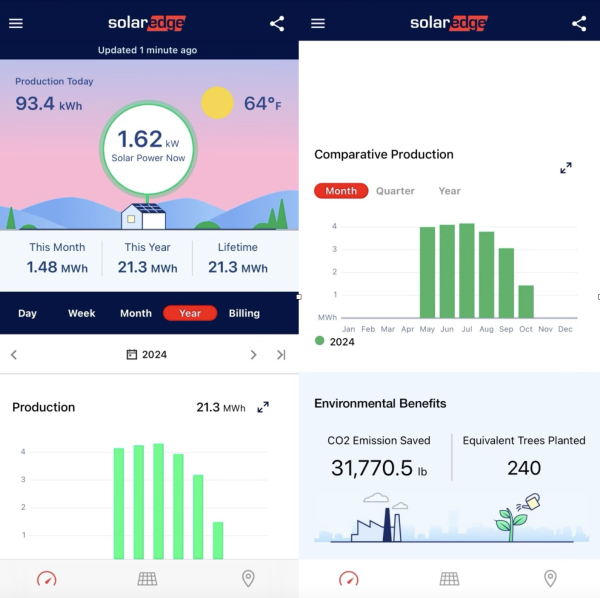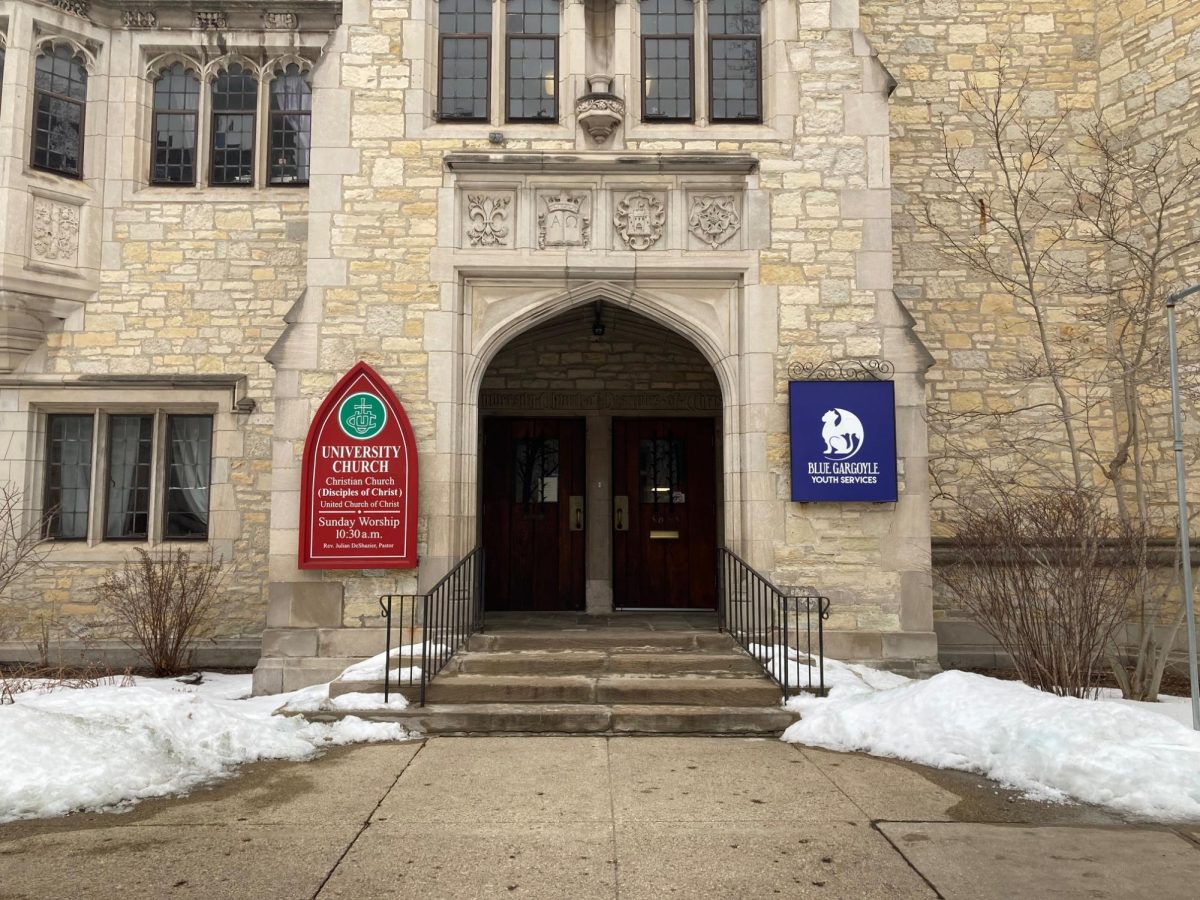University Church installed 56 solar panels on its roof this May using funding from the federal Infrastructure Investment and Jobs Act passed in 2021. Since the installation began generating electricity, the church—located across from Bartlett Dining Commons on East 57th Street and South University Avenue—has cut its carbon emissions by approximately 16 tons and eliminated nearly all of their electrical costs.
From the date of installation to October 17, the solar panels have produced over 20 kilowatt hours. As a result, the Church’s annual electrical bill, previously over $3,000, is now projected to drop to around $200. The carbon dioxide saved so far as a result of the switch to renewable energy is equivalent to planting 240 trees.

At the start of the project, University Church treasurer Stephanie Weaver worked with Illinois Solar for All—a state program that makes solar installations more affordable for eligible residents and organizations—to apply for funding from the Infrastructure Investment and Jobs Act, passed by President Biden in November 2021.
According to Weaver, while the Infrastructure Bill offers funding for private homes and businesses, it prioritizes accessibility for non-profit organizations like University Church.
“[EPA Renewable Energy Cost payments] covered at least the portion of our cost to put the solar panels on,” Weaver said. “With the passing of the infrastructure bill, that was more money available to cover the cost.”
With numerous organizations using the Church’s space on a weekly basis, including counseling and psychotherapy groups and an amateur theater troupe, Weaver said the Church easily “me[t] the criteria for funding.” After securing permission from the city of Chicago—a process that took about a year and a half and included “an architectural survey of the Church”—Ailey Solar, the installation company, was able to proceed with the solar panel installation.
“They installed enough panels to cover electricity that you use monthly, daily—all your electric needs,” Weaver said. When necessary, the panels can also “pull electricity off the grid.”
The panels are expected to last nearly 25 years, and the Church anticipates minimal additional upkeep investments during this period. In the meantime, University Church is continuing to explore other ways to reduce their climate impact.
“The thermostats are set to 60 degrees. We turn it up a little on Sunday and then turn it back down,” Weaver said.
The church is also implementing “smart thermostats” and a full substitution of their current light bulbs with more energy-efficient LEDs. In the future, they hope to transition entirely to electrically operated heating and cooling.
“I think everyone—individuals in their houses, businesses, the University of Chicago, should think about and explore pursuing a solar option,” Weaver said, adding that Augustana Lutheran Church on the northeast corner of campus is already planning to follow in their footsteps.









